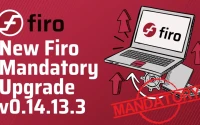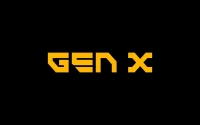So, another Silicon Valley darling, Navan, finally staggered onto the public stage this week, and the market promptly booed it off. Shares of Navan Closed Down 20% In Long-Awaited IPO Debut. And I’ve got to tell you, I haven't felt this optimistic in years.
This wasn’t just another bad IPO. This was a beautiful, glorious, long-overdue dose of reality injected directly into the heart of the tech bubble. For the better part of a decade, we’ve been told to worship at the altar of "growth." Revenue up? Great! Doesn't matter if you're burning cash like a rock star in a hotel room. User numbers climbing? Fantastic! Who cares if you've never turned a single dollar of actual profit.
Navan was the poster child for this nonsense. A company that has lost money every single year since it was born in 2015. A company that literally admits in its own IPO filing that it "may not achieve or, if achieved, sustain profitability in the future." That’s not a risk factor; that’s a cry for help. And for once, public investors listened. They looked at the emperor, saw he was naked, and refused to applaud. It’s a miracle.
The Religion of Burning Money
Let’s be clear about what Navan actually is. It’s the company formerly known as TripActions, which saw its revenue plummet to zero during the pandemic—a near-death experience that should have taught it some humility. Instead, it rebranded, went on an acquisition spree, and kept lighting venture capital on fire.
We’re talking about a company that raised over $2 billion in private and debt financing from all the usual suspects—Andreessen Horowitz, Lightspeed—the kingmakers who profit from pumping these things up and dumping them on the public. They sell a story about "agentic AI" and "disruption," and for years, it worked. They got a valuation of $6.2 billion out of the gate.
But what’s the actual product behind the buzzwords? An expense management platform. I mean, my god. I have to file expenses, you have to file expenses. It’s a miserable process that no amount of AI is going to make magical. It’s a plumbing business, not a moonshot. Yet they were spending like one, with losses ballooning to nearly $100 million in just the first half of this year. Why? To chase that magical 30% revenue growth that would look good on a slide deck for "growth-hungry investors."

"Growth-hungry" is just PR-speak for "suckers willing to ignore a balance sheet." This is a bad business model. No, 'bad' doesn't cover it—this is a fundamentally flawed religion that VCs have been preaching for a decade, and Navan is just the latest sermon. They expect us to believe that losing more and more money is somehow a sign of future success. This ain't 2021 anymore, folks.
A Victory for Sanity
The most beautiful part of this whole debacle is the message it sends. For years, the IPO was the finish line for VCs. The goal wasn't to build a sustainable, profitable company. The goal was to build a convincing story of a company, pump its valuation to the stratosphere with private money, and then cash out by selling it to the public markets—pension funds, 401(k)s, your aunt Carol's retirement account.
Navan's flop is a crack in that foundation. The public market, for the first time in a long time, acted like a discerning customer instead of a star-struck fan. It looked at the numbers—the real numbers, the ones showing a company hemorhaging cash with no end in sight—and said, "No, thanks."
This isn't a tragedy for Navan; they still raised almost a billion dollars. This is a victory for everyone else. It’s a sign that maybe, just maybe, the definition of a "successful" company is slowly returning to its old-fashioned roots: a business that, you know, makes more money than it spends. What a concept. They bought up a bunch of regional companies, trying to stitch together a global footprint, and honestly...
Are we really supposed to believe that this cobbled-together machine, fueled by debt and VC cash, is the future of anything? Or is it just the last gasp of an era defined by cheap money and wishful thinking?
Then again, maybe I'm the crazy one here. Maybe next week some AI-powered dog-walking app will go public with a billion-dollar loss and its stock will triple, and the whole circus will start all over again. But for one brief, shining moment on Thursday, the market chose sanity. And I’m going to enjoy it while it lasts.
So We're Not All Insane After All
Let's call this what it is: a much-needed public shaming. For a decade, Silicon Valley has operated in a fantasy land where profits were a quaint, old-fashioned idea. Navan’s IPO was supposed to be another coronation. Instead, it was a rejection. The VCs got their exit, but they got it at a discount, with a black eye for their troubles. The message from the real world is finally clear: your story doesn’t matter if the math doesn’t work. Good.









